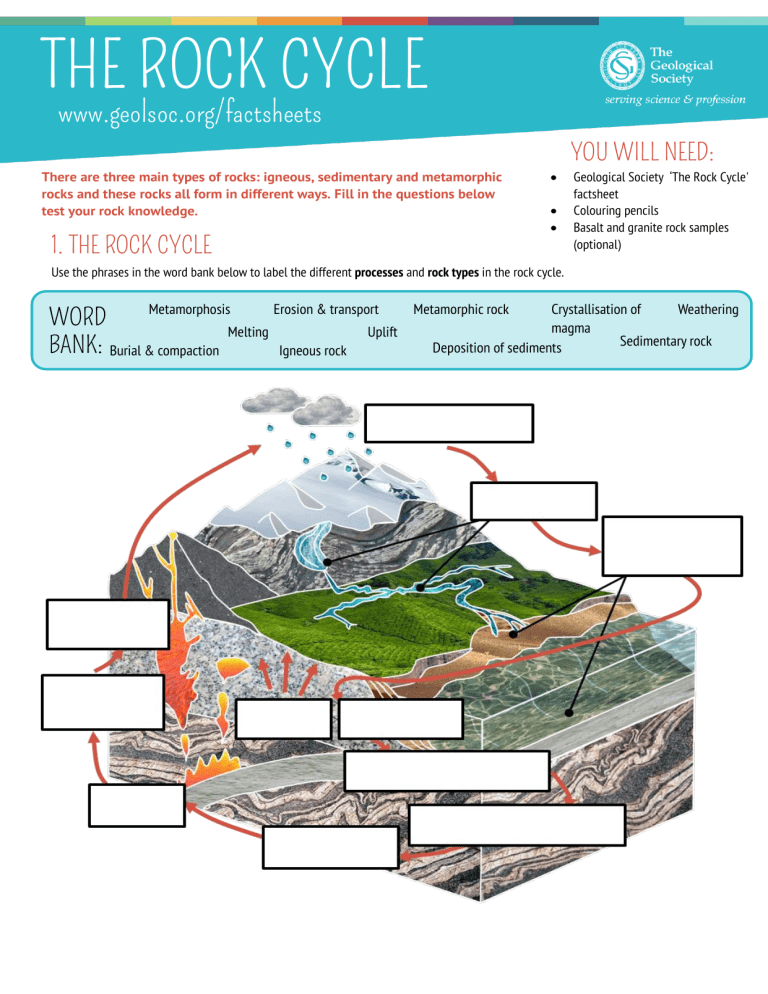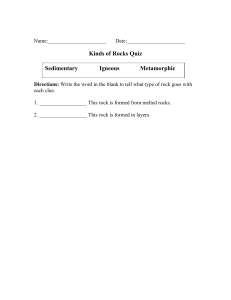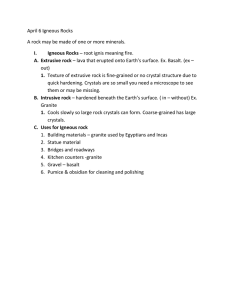
THE ROCK CYCLE www.geolsoc.org/factsheets YOU WILL NEED: There are three main types of rocks: igneous, sedimentary and metamorphic rocks and these rocks all form in different ways. Fill in the questions below test your rock knowledge. 1. THE ROCK CYCLE Geological Society ‘The Rock Cycle' factsheet Colouring pencils Basalt and granite rock samples (optional) Use the phrases in the word bank below to label the different processes and rock types in the rock cycle. Metamorphosis Erosion & transport WORD Melting Uplift BANK: Burial & compaction Igneous rock Metamorphic rock Crystallisation of Weathering magma Sedimentary rock Deposition of sediments Geolsoc.org THE ROCK CYCLE www.geolsoc.org/factsheets 2. SEDIMENTARY ROCKS a) Use the space below to draw the stages in which a sedimentary rock might form. WEATHERING: wind, rain & ice EROSION: rivers, glaciers & wind break up rock into fragments transport the sediment away BURIAL & COMPACTION: sediments are pushed deeper and compacted over time DEPOSITION: sediments are laid down in layers in a sea or lake SEDIMENTARY ROCK: sediments are cemented into a rock Basalt Granite 3. IGNEOUS ROCKS Granite and basalt are two types of igneous rock. Granite has large crystals whereas basalt has tiny crystals. a) Label the diagram to show where each rock forms. b) Why do you think granite usually has larger crystals than basalt? Tip: Think about temperature. ______________________________________________________________________ ______________________________________________________________________ _____________________________________________________________________ 4. METAMORPHIC ROCKS How can a sedimentary rock become a metamorphic rock? ___________________________________________________________________________________________________________________________________________ ___________________________________________________________________________________________________________________________________________


